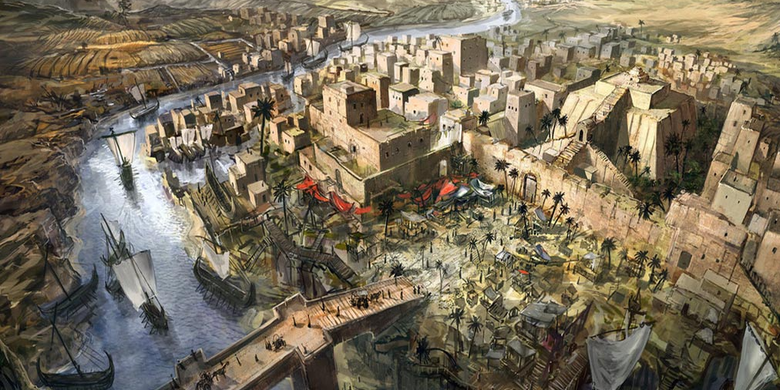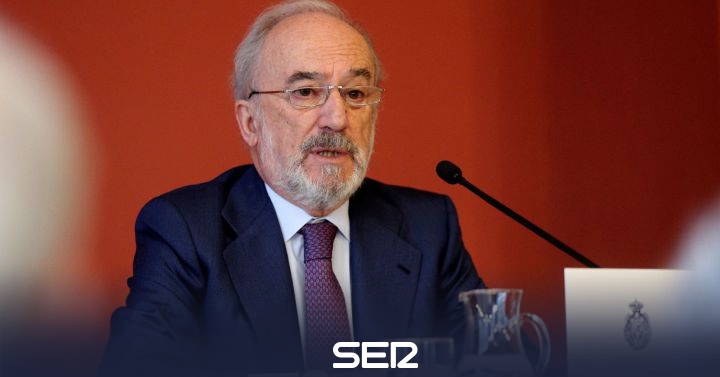KOMPAS.com – The kingdom is an area ruled by kings and queens. The kingdom is often called a monarchy, because it is led by one person who inherits the position of the previous leader.
An empire can be very large, like Great Britain. During the 19th century, Great Britain being ruled from London, England stretched over five continents.
Reporting from Encyclopaedia Britannica (2015), the sole king or queen who makes all statewide decisions. Kingdoms are usually broken up into smaller territories, such as countries or provinces.
The earliest kingdoms in the world developed thousands of years ago, when leaders began to rule over cities and settlements.
The rulers of the early kingdoms provided protection to the people or the people, in return the people had to pay taxes or services to the king.
Also read: History of the Castle: Origin and Reasons for Built
With the power to provide protection, the kingdom also has the power to make and enforce laws.
The first kingdom
Adapted from National Geographic, the first kingdom was established around 3000 BC in Sumeria and Egypt. Sumer is a kingdom that exists between the Trigis River and the Euphrates in Iraq.
The Sumerians had their own written language and carried out the first construction projects, such as an irrigation canal and a large temple called the Ziggurat.
There is some evidence that Sumerian Kingdom trade and war with neighboring territories.
Several thousand years later, the Teotihuacan empire flourished in North America. The kingdom is centered in the City of Teotihuacan in Mexico. The kingdom had more than 100 thousand inhabitants and became one of the largest ancient kingdoms in the world.
Also read: 6 of the oldest castles in the world
Geographically, the kingdom was a large political unit because it consisted of many different cultural groups. The kingdom of Ancient Egypt was a kingdom ruled by a king, called the pharaoh.
The Egyptian empire reached its peak in the “New Kingdom” period, under the leadership of Pharaoh Amenhtop III (1390-1352 BC).
Egypt in the New Kingdom stretched from Egypt, along the Mediterranean coast to Turkey in the north and Eritrea in the south. However, it turns out that many kingdoms don’t have kings.
This proves that the characteristics of one kingdom will be different from another kingdom.
Pyramids in Egypt- Modern Kingdom
To this day there are still several kingdoms ruled by an absolute king, including King Salman bin Abdulaziz Al Saud of Saudi Arabia, King Mswati III of Swaziland, and King Hassanal Bolkiah of Brunei Darussalam.
All of these kingdoms have legislatures and legal instruments, with the king remaining the final authority.
Also read: 5 Unique Facts of the Pinisi Ship
Most of the others are currently constitutional kingdoms. The king or queen acts as the ceremonial head of state, with public responsibility.
Like the promotion of tourism and an interest in the history and culture of the nation. However, they do not have great political authority.
Under a constitutional monarchy, a country is governed by a constitution or law administered by a president or prime minister elected by the people.
For example in England, Queen Elizabeth II is the official head of state, but the nation is governed by the prime minister and parliament.
The Thai government which was formerly the Siamese Government is modern empire. The kingdom ended absolute monarchy in 1932 and chose democracy with an elected leader and a court of law.
Also read: Name of 5 Oceans in the World
Modern kingdom others ruled by constitutional monarchies include Sweden, Belgium, Japan, and Morocco.
– .
Related posts:
110 years since the start of the First World War. Czech soldiers in the Great WarSixth International Baltic Sea Choir Competition: Participating Choirs, Judges, and PrizesShould cocaine be legalized? - The postVacunagate 15 congressmen from the Peru-China Parliamentary Friendship League declare under oath tha...
To this day there are still several kingdoms ruled by an absolute king, including King Salman bin Abdulaziz Al Saud of Saudi Arabia, King Mswati III of Swaziland, and King Hassanal Bolkiah of Brunei Darussalam.
All of these kingdoms have legislatures and legal instruments, with the king remaining the final authority.
Also read: 5 Unique Facts of the Pinisi Ship
Most of the others are currently constitutional kingdoms. The king or queen acts as the ceremonial head of state, with public responsibility.
Like the promotion of tourism and an interest in the history and culture of the nation. However, they do not have great political authority.
Under a constitutional monarchy, a country is governed by a constitution or law administered by a president or prime minister elected by the people.
For example in England, Queen Elizabeth II is the official head of state, but the nation is governed by the prime minister and parliament.
The Thai government which was formerly the Siamese Government is modern empire. The kingdom ended absolute monarchy in 1932 and chose democracy with an elected leader and a court of law.
Also read: Name of 5 Oceans in the World
Modern kingdom others ruled by constitutional monarchies include Sweden, Belgium, Japan, and Morocco.
– .


